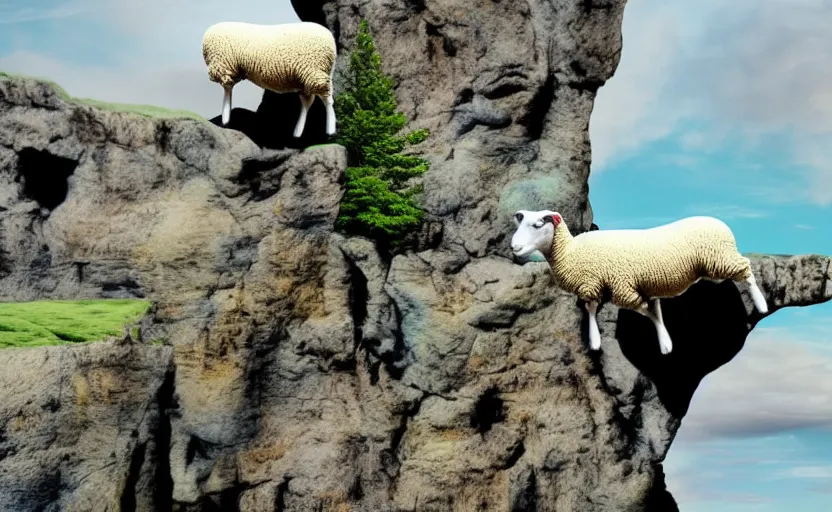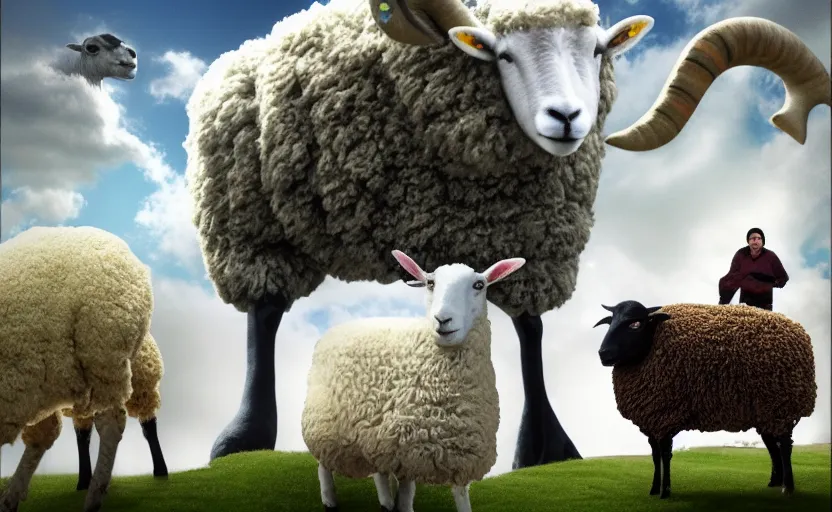The FED just released their rate hike, there were no surprises there.
We are going through the highest inflation trend in modern history and people don't seem to realize that the Covid lockdowns played a huge role on how things are unfolding now that the pandemic is over and people can slowly go back to living their event-less lives.

But here's the thing, during the lockdowns, the consumer trends changed and while the small shops and the mom and pop stores were forced to close their premises and go home - and live off of god knows what -, Amazon, Walmart, Alibaba and all the retails giants both online and irl were allowed to stay open, causing a huge change in the consumption habits of the average Joe and Jane, and while this situation also caused a massive change of hands in terms of wealth, I want to focus this post on the trend of consumerism, not on how this pandemic allowed the rich to get richer and made the middle class go lower in terms of accumulated wealth.
Retail giants and their role in consumerism
I used to work at Walmart in strategic planning and then I went on to the financial planning sector of the company, gladly - and luckily - I left around 5-6 years ago, but I still managed to keep some knowledge on this area. Planning for inventory takes months and logistics take time, which is why when the governments decided to lock down everything, the stores went out of inventory due to the panic purchases going on pretty much everywhere because well, people thought it was the end of the world, or at least that's what they made us think.
The retail giants expected a recession two years ago but the people were more than ready to spend their savings. The daily routine of the people changed drastically and people stopped travelling or going to restaurants, and instead they found different hobbies and ways to spend their money, money that apparently burns their hands and people just can't hold on to it.
Chess had it's biggest boom during the pandemic, Amazon became almost a monopoly, crypto got a huge explosion in users - and losses for the rookies - because people had to adapt to not being able to go out or do what they usually do outside.
E-commerce evolved a lot during the lockdowns and anyone who didn't adapt, went broke.
Imagine how much money companies who made home gyms made during the pandemic...
Many stores also had to endure an excess of inventory and they either marked down their products or they spent big amounts of money in storage fees, but both scenarios played a big role in sending many companies to the broken realm.
The secret for companies who came on top during the pandemic was to find a balance when it comes to inventory you don't want to be understock and let your sales go down because people went to your competition, but also not to overstock because you would have to pay massive fees in storage expenses.
The pandemic is over

Big brands are trying to keep low prices on the most important products which a are the main basket, like beans, macaroni cheese, water, etc
But inflation has become a very concerning topic, at least for those who are paying attention.
Theory: Customers are moving from high price goods to lower ones and they purchase the cheapest options. Are people defining their daily diet based on food prices? It could be, but is everyone doing that?
The average person can make these decisions when it comes to food and basic goods but when it comes to gas, how can people make this decision if the prices are set? They can either decide to go out and work or stay at home, they can't really save money on things like this one.
The difference between big stores and mom and pop stores is that the giants can endure providing goods at low prices, and people will eventually end up picking the cheapest options in the cheapest places, effectively rendering the small stores out of competition, these small stores just can't compete with the giants, it was true before the pandemic but it became evident to everyone after the lockdowns.
Big retailers are taking the post-pandemic scenario quarter to quarter, so they are making decisions to fight in two fronts, the short term one and the mid-term one - over the next five years.
The reality is that the trend of consumerism is annoying for people who is against the system like you and me, because big tech, big retail and big government came on top out of the pandemic, and man I hate this situation.